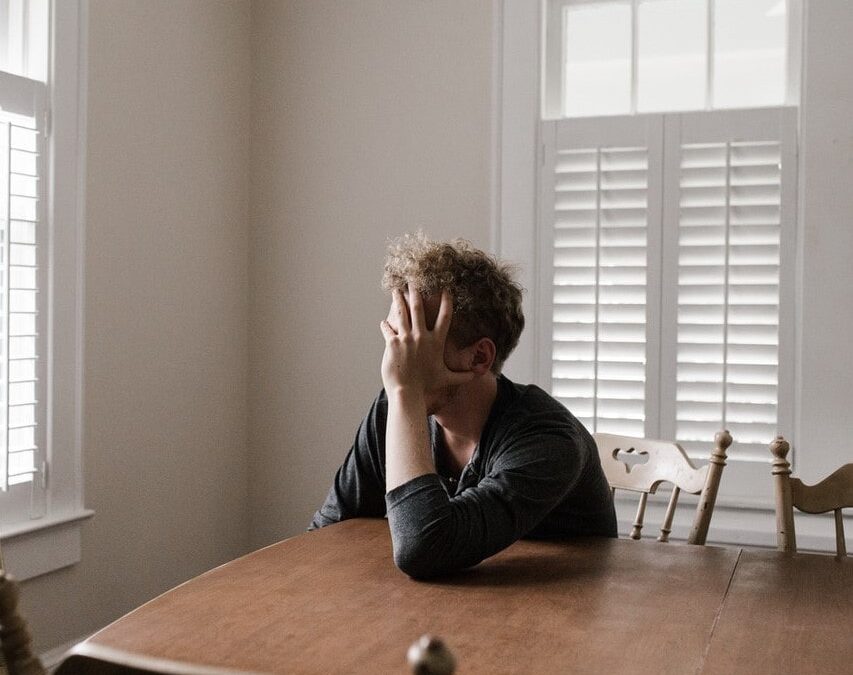September is Suicide Prevention Month. Unfortunately, the reality is that there are many people suffering the loss of loved ones and friends that have died by suicide. This post is about trauma recovery and the aftermath of losing someone in this way.
As heartbreaking as it is to share, suicide is the 10th leading cause of death in the United States according to the American Foundation for Suicide Prevention. In 2018 alone, there were 1.4 million suicide attempts, and nearly 50,000 Americans died by suicide. They also said, “the rate of suicide is highest in middle-aged white men.”
What happens to those left behind once a loved one has committed suicide? The after-effects are often far-reaching, particularly when it involves a young person. Learning how to cope with grief, and express rather than bury emotions, are the two keys to recovering from such trauma.
Before we go any further with this post, I need to share this – if you or anyone you know is thinking about suicide, please call the National Suicide Prevention Lifeline.
“We can all help prevent suicide. The Lifeline provides 24/7, free and confidential support for people in distress, prevention and crisis resources for you or your loved ones, and best practices for professionals. 1-800-273-8255”
What are Post-Suicide Reactions/Feelings After Suicide?
Following the death of a loved one, especially when the individual took their own life, may result in a wide range of different emotions and feelings. Some of the reactions associated with suicide include the following:
- disbelief – struggling to believe it it was suicide
- detachment – feeling numb, unable to cry
- guilt – blaming yourself for not spending time with the person
- blaming the deceased – thinking that it was selfish or irresponsible
- blaming others – blaming individuals for causing the suicide
- anger – feeling angry with those close is normal
- resentment – focus being on the deceased when you are hurting
- shame and embarrassment – feeling stigmatized
- confusion – struggling to make sense of the situation
- anxiety – worry and fear that another loved one will die too
- intense sadness – crying all the time
- suicidal feelings – feeling lost without the loved one
- relief – knowing that the individual is no longer suffering
- isolation and loneliness – shutting away from friends, stuck in grief
Coping with the Aftermath of Suicide – Helping Yourself Recover
Learning how to come to terms with suicide is very difficult, mainly due to the fact that the act itself evokes so many feelings and emotions within. After a loved one, family member, or friend has taken their own life, it is important to understand that with the right support, you will begin to feel better about life again. In addition to feeling many of the emotions listed above, to help yourself feel better after losing someone:
- talk about what happened – helps process and make sense of suicide
- express your feelings – share with others, through writing a journal or artwork
- get support from others – try to be around caring, supportive people
- know it was not your fault – it is normal to feel following guilty suicide
- try to stick to a routine – too much time off can make you feel worse
- counseling – consider one-to-one counseling and support groups
Don’t feel like you have to get through this alone. There are plenty of resources available to help you through this time. A great place to start if you are in the Tampa Bay area is the Crisis Center of Tampa Bay who says, “We are here 24 hours a day, 365 days a year as the community’s gateway to help. People who are struggling with a variety of crisis situations including sexual assault or abuse, domestic violence, financial distress, substance abuse, medical emergency, suicidal thoughts and other emotional or situational problems can connect to hope and healing. Call 2-1-1 To Speak Confidentially With Someone Who Cares!”
Helping a Friend to Cope
If you have a friend who has recently been affected by the loss of someone in this way, there are several ways in which you can help. Just telling your friend, by phone, in person, or email that you want to be there for them, and offering support can make a difference. Listening is an important way to show that you care, rather than jumping in with your thoughts and opinions. Find out if there are any support groups for suicide survivors in your area and offer to attend with your friend. If you are worried that your friend is exhibiting signs of feeling suicidal, remind them that this is not the solution and talk about getting professional help.
As highlighted above, losing a loved one in this way will likely cause a whole range of emotions and feelings, making it important for those left behind to have the support and be able to express themselves. Accessing help to come to terms with suicide is key, with many support groups and counselors or therapists specifically aimed at recovery.
The National Suicide Prevention Lifeline is a national network of local crisis centers that provides free and confidential emotional support to people in suicidal crisis or emotional distress 24 hours a day, 7 days a week. We’re committed to improving crisis services and advancing suicide prevention by empowering individuals, advancing professional best practices, and building awareness. 1-800-273-8255
Hammond Psychology and Associates is the go-to resource for residents seeking psychological evaluations from a licensed psychologist in the Tampa Bay area. Click here to learn more about our Psychological Testing services in our Brandon location.

